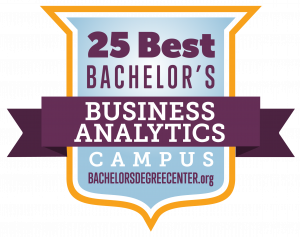
Key Information:
- Florida Polytechnic University has the #1 top business analytics bachelor’s degree.
- Business analytics degrees are highly sought after due to the growing need for professionals who can interpret large data sets and contribute to strategic decision-making.
- Many bachelor’s programs offer practical learning through case studies, internships, and projects that mirror real-world challenges.
- Graduates are well-prepared for high-level careers in analytics or further studies, including master’s programs.
A business analytics degree is a STEM degree that’s in strong demand by businesses trying to understand the large amounts of data generated by customers and users. When looking at the question of “what is a business analytics degree?”, you’ll find that it’s a highly technical degree that combines business principles with technical knowledge.
If you have a strong interest in solving complex issues, have an aptitude or interest in learning computer programming languages, and are interested in playing a critical role in the decision-making process, you will find a degree in business analytics worth it.
The position of a business data analyst is one that’s here to stay as businesses collect information from a variety of sources, then use it to their own advantage. Information generated through analytics can put a business in a better position to serve more users as well as increase profits. Business analytics is the modern version of collecting data from user surveys, product testing, and feedback collection in order to predict the future of a product or service.
Methodology: Ranking the Best Business Analytics Degrees
To rank the best business analytics degrees, the editors at Bachelor’s Degree Center researched only reputable, accredited colleges and universities. Programs are ranked according to their cost, potential salary, and student satisfaction, using current IPEDS and Niche data.
1. Florida Polytechnic Unversity

The Business Analytics program at Florida Polytechnic University is a bachelor of science degree program that prepares students to analyze business and finance-related data in order to gain insight to an existing situation or problem, and propose solutions or streamline operations. Classes in the program include biology, technical writing, chemistry, principles of macroeconomics, Six Sigma, entrepreneurial opportunity, and more. The degree program also leads to concentrations in Intelligent Mobility, Logistics and Supply Chain Management, Quantitative Economics and Econometrics, and Health Systems Engineering.
Florida Polytechnic University (Florida Poly) is a public university and is part of the State University System of Florida. It’s the only polytechnic university in the state, and only offers STEM programs. The school was opened in 2012 and features a fully modern campus including a campus library that is all digital.
What We Like: The school has a space-grant affiliation, and is home to a big data lab, a cyber security lab, a cyber gaming and media lab, and a 3‑D printing lab. It offers nine bachelors degrees and two master’s throughout 31 educational concentrations.
Degree: Business Analytics, BS
Florida Polytechnic University
2. Brigham Young University

Brigham Young University offers a bachelor’s in Statistics: Applied Statistics and Analytics to provide a foundational education in the science of analyzing statistical models. Upon graduation, students will have learned the skills and knowledge to perform tasks that include the ability to manipulate data, use the appropriate methods for analyzing data, be able to create technical reports and presentations to laypeople, and solve problems using complex mathematics. Upon graduation, students can find employment in positions that require a BS in Applied Statistics.
Brigham Young University (BYU) is a private, not-for-profit research university that’s sponsored by The Church of Jesus Christ of Latter-day Saints. The school has a well-earned reputation for providing a low-cost, high-quality education and has a Carnegie classification of “Doctoral Universities: High research activity”. BYU offers 183 bachelors degrees across 98 majors.
What We Like: Its athletics teams participate in NCAA Division I — Independent, MPSF, WCC conference.
Degree: Statistics: Applied Statistics & Analytics, BS
3. University of Virginia

The University of Virginia offers a Business Analytics Track as part of its bachelor of science in commerce program, and is one of the best business analytics degrees for students who want to earn a masters’ degree in business analytics alongside their undergraduate degree. The track is designed to teach students practical research skills that are needed to design, create, and analyze data sets used by commercial enterprises to understand and evaluate consumer behaviors. Students also learn how to report their findings in ways that don’t overwhelm the reader or listener. The program is designed to help students appreciate the challenges commercial enterprises face when relying on analytics to make their key strategies and decisions.
The University of Virginia (UVA) is a public research university that was founded in 1819 by Thomas Jefferson. It’s also the flagship school of Virginia and is a highly regarded educational institution in terms of history, educational quality, research facilities, and its notable alumni.
What We Like: The school has a space- and sea-grant affiliation, and has a Carnegie classification of “R1: Doctoral Universities: Very high research activity”.
Degree: Business Analytics Track, BA to MBA Program
4. Rutgers University
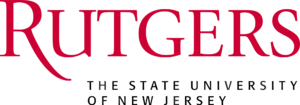
The Business Analytics and Information Technology (BAIT) BS at Rutgers Business School teaches students how to use computer systems for the management and analysis of data along with supporting decision making in an organization. Students learn how to design databases and manage them, web server technology, data mining, and risk modeling. The program has a focus on teaching students how to work with big data which analyzes large volumes of data. Graduates will possess business fundamentals, the ability to function in teams, and take on leadership or management roles. Students from the BAIT program have gone on to work for Fortune 500 companies.
Rutgers University (RU) is a public research university and is the eighth-oldest college in the U.S. having been founded in 1766. The school features both sea- and space-grant affiliations, and has a Carnegie classification of “R1: Doctoral Universities — Very high research activity”.
What We Like: Rutgers has multiple museums and art collections that are open to the public for viewing, botanical gardens and arboretums, the papers of Thomas Edison, and working farms.
Degree: Business Analytics and Information Technology
5. Carnegie Mellon University

The Heinz College at Carnegie Mellon University offers a BS in Information Systems degree program. The curriculum includes classes in structured and unstructured data analytics, predictive modeling, machine learning, statistics for IT managers, big data and large-scale computing, among others. Carnegie Mellon’s program combines computer science, information science, and business management for a well-rounded business analytics education.
Carnegie Mellon University (CMU) is a private research university and has produced multiple alumni that have gone on to earn prestigious awards and prizes. U.S. News and World Report ranks Carnegie Mellon at 25th place for American research university for 2022. It also ranks high for computer science, fine arts, statistics, and psychology.
What We Like: The Carnegie Mellon classification gives itself a ranking of “R1: Doctoral Universities — Very High Research Activity” with the school spending millions of dollars on research every year.
Degree: BS in Information Systems
6. Iowa State University

Iowa State University offers a BS in Business Analytics through its Debby and Jerry Ivy College of Business. Students who take the program can double major in business analytics and another major of their choice. A total of 21 credit hours are required to complete the major in business analytics, and required classes include introduction to data science, analytical methods in finance, customer relationship management, and social media marketing strategy, to name a few. Students learn how to use the latest in technology, and learn how to apply their findings to frame and create solutions for business problems.
Iowa State University (ISU) is a public research university, and is the largest university in the state. It has a space-grand affiliation and has a Carnegie classification of “R1: Doctoral Universities — Very high research activity”. It receives almost $500 million in research grants on an annual basis.
What We Like: ISU offers more than 100 bachelor’s degree programs, over 110 master’s degree programs, and 83 doctoral degree programs, along with a degree in veterinary medicine.
Degree: Business Analytics, BS
7. Indiana University — Bloomington
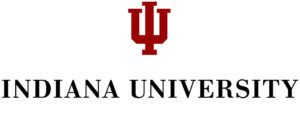
The Kelley School of Business at Indiana University — Bloomington offers a BS in Business Analytics co-major that complements all Kelley majors. The program teaches advanced business analytics skills to give students the ability to integrate the information they learn from data analysis into their decision-making processes. Students graduate from the program with the skills needed to work as a consultant, corporate information technology, business analysis, supply chain and operations management, and business management.
Indiana University — Bloomington (IU) is a public research university and is the flagship campus of the Indiana University system. The school has a space-grant affiliation, and has a Carnegie classification of “R1: Doctoral Universities — Very high research activity”. Athletics teams at IU participate in the NCAA Division I FBS — Big Ten conference.
What We Like: Around 45,000 students enroll each academic semester to study for a bachelor’s, master’s, or doctoral degree.
Degree: Business: Business Analytics, BS
Indiana University — Bloomington
8. Ohio State University

Ohio State University offers a BS in Data Analytics specialization program that teaches students how to handle large amounts of data and analyze the information for insights. The degree program combines mathematics, computer science, and statistics to help students gain problem-solving and critical thinking skills along with the ability to clearly communicate their findings. Students in the program can participate in Ohio State’s annual American Statistical Association DataFest competition that has undergraduates take on a data analysis challenge in order to win prizes.
The Ohio State University (OSU) is a public research university and is part of the University System of Ohio. It’s considered a Public Ivy school and regularly ranks as one of the best public universities in the U.S. It features a sea- and space-grant affiliation, and has a Carnegie Classification of “R1: Doctoral Universities — Very high research activity”. The school’s athletics teams participate in the NCAA Division I FBS — Big Ten — WCHA conference.
What We Like: Many notable individuals have graduated from OSU and gone on to earn prestigious awards and entered into politics.
Degree: Data Analytics, BS — Business Analytics specialization
9. Case Western Reserve University

Case Western Reserve University offers a BA or BS and master of business analytics integrated program. Students in this program earn their bachelor’s and master’s degree at the same time over five years. The program teaches students to learn about and understand how big data plays a role in the decision-making process of a business, and how to use the data to gain a competitive edge against similar businesses. Some of the classes in the program include managerial marketing, data mining and visualization, predictive marketing, and accounting and financial management.
Case Western Reserve University is a private research university located in Cleveland, Ohio, and gets its name from the combination of the Case School of Applied Science and Western Reserve University.
What We Like: The school enrolls almost 12,000 students each academic year, and offers 95 bachelor’s, 135 master’s and doctoral degrees, dual degrees, and professional certificates.
Degree: Business Analytics, BS/BA to MS Program
Case Western Reserve University
10. Indiana University-Purdue University Indianapolis

Indiana University-Purdue University Indianapolis offers a BS in Applied Data and Information Science through its School of Informatics and Computing. Students learn how to develop their math and technology skills so they can analyze complex datasets and use their discoveries to inform their decision-making process for the data science portion of the degree. The applied information science portion of the program teaches students how to organize, access, and manage datasets, how to manage data, archive information, and organization. Students can earn a bachelor’s and master’s degree in five years through an accelerated graduate studies program.
Indiana University-Purdue University Indianapolis (IUPUI) is a partnership between Indiana and Purdue universities located in downtown Indianapolis. The school’s athletics teams participate in the NCAA Division I — Horizon League conference.
What We Like: The school offers over 200 degree programs, is the primary campus for the Indiana University School of Medicine, and is home to the only school of dentistry in the state of Indiana. It’s also the location of one of two law schools in the state.
Degree: Applied Data and Information Science, BS
Indiana University-Purdue University Indianapolis
11. University of Miami

The University of Miami offers a BS in Business Analytics for students who are studying for a bachelor of science in business administration degree. Students take core business classes that include business analytics, fundamentals of finance, calculus, and operations management, then take 18 hours of specialization classes in the business analytics major. Classes in the analytics major include data acquisition, preparation, and visualization, object-oriented programming, database management systems, and computer simulation systems. Graduates of the program will possess strong communication skills, have critical thinking skills, and be able to use tools and techniques to analyze datasets.
The University of Miami (UM) is a private research university that features a sea- and space-grant affiliation, and has a Carnegie Classification of “R1: Doctoral Universities — Very high research activity”. Its athletics teams participate in the NCAA Division I FBS — ACC conference.
What We Like: The school spent over $350 million on research in 2019. Over 35,000 students attend UM to study for bachelor’s, master’s, and doctoral degrees.
Degree: Business Analytics, BBA
12. University of Vermont

The University of Vermont offers a Business Analytics (BA) concentration program through its Grossman School of Business. The program has a focus on data-driven decision making in order to convert data into context-specific information and aid a business in making decisions that are advantageous to its operation. Students who take the BA concentration engage in classes that teach six-sigma quality, supply chain management, business process improvement, statistics, and operations research. The school recommends students take a minor in computer science, math or statistics alongside the BA concentration.
The University of Vermont (UVM) is a public flagship research university, and is one of the original public Ivy colleges in the U.S. The school has a Carnegie classification of “R2: Doctoral Universities — High research activity”, and features both a sea- and space-grant affiliation. The University of Vermont Medical Center, the largest hospital in the state of Vermont, is located on the main campus.
What We Like: UVM offers bachelors, masters, and doctoral programs throughout its nine schools and colleges.
Degree: Business Analytics, BA
13. Auburn University
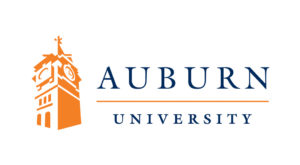
Auburn University offers a BS in Business Analytics through its Harbert College of Business. The program offers a variety of software learning environments with students learning programming languages that include SAS, Python, Watson, SAP, R, and Tableau. Other classes in the program include tech aspects of big data, professional development in business analytics, and principles of predictive modeling. Students who graduate from the program are in high demand as the school has an excellent placement rate for its graduates.
Auburn University (AU) is a public research university in Alabama, is the second-largest university in the state, and is the flagship university for the Alabama state university system. The school has a Carnegie classification of “R1: Doctoral Universities — Very high research activity”, and has a sea- and space-grant affiliation. The school’s athletics teams participate in the NCAA Division I FBS — SEC conference.
What We Like: Auburn has a strong association with NASA with six astronauts graduating from the school, and several hundred graduates going on to work for the agency.
Degree: Business Analytics, BS
14. Saint Louis University

Saint Louis University offers a BS in Analytics and Enterprise Systems through its Chaifetz School of Business. The program is described as a software-based major and emphasizes the use of software to perform enterprise resource planning tasks. Students learn how to collect, organize, and analyze data generated through business activities in order to aid in making decisions, solve problems, and refine business operations. The school offers SAP certification to students, and is the only one in the St. Louis area that offers the certification.
St. Louis University (SLU) is a Roman Catholic private research university run by the Jesuits, and is the oldest university west of the Mississippi with its founding in 1818. Around 28,000 students enroll each academic semester in order to earn professional certificates, bachelor’s and master’s degrees, and doctorates. The school’s athletics teams participate in NCAA Division I — A‑10 conference.
What We Like: The school has a space-grant affiliation, and has a Carnegie classification of “R2: Doctoral Universities: High research activity”.
Degree: Analytics and Enterprise Systems, B.S.
15. University of Tennessee-Knoxville
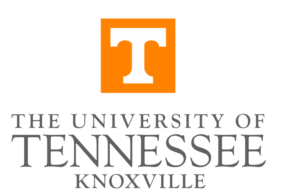
The University of Tennessee-Knoxville offers a BS in Business Analytics program through its Haslam College of Business. It prepares students to work in various fields that include supply chain finance, marketing, consulting, and more. Students learn to use the tools that successful business analysists use on a daily basis, and learn how to engage in regression analysis, database mining, database management, and relevant software. The program encourages students to engage in degree-related internships in order to improve their starting salary after graduation.
The University of Tennessee-Knoxville (UTK or UT) is a public research university that was founded two years before Tennessee was granted statehood, and is part of the University of Tennessee system. It features a sun-grant affiliation and has a Carnegie classification of “R1: Doctoral Universities — Very high research activity”. The athletics teams at UT participate in the NCAA Division I FBS — SEC conference.
What We Like: The school is tied to the Oak Ridge National Laboratory, and is affiliated with various research institutions.
Degree: Business Analytics, BS
University of Tennessee-Knoxville
16. University of New Hampshire

The University of New Hampshire offers a BS in Analytics and Data Science with an analytics option that focuses on business through its College of Engineering and Physical Sciences. Students learn the latest in technical skills to help them manage, analyze, interpret, and create conclusions from datasets for a wide variety of businesses. Classes include learning how to program in languages such as Python and R, and learn how to use big data frameworks like MapReduce and Hadoop. Students participate in internships, applied projects, and field work to help them apply their education with real data.
The University of New Hampshire (UNH) is a flagship public research university, and the largest campus in the University System of New Hampshire. It has a total of 11 colleges and graduate schools, and offers over 100 majors. The athletics teams at UNH participate in the NCAA Division I — America East.
What We Like: The school features a sea- and space-grant affiliation, and has a Carnegie classification of “R1: Doctoral universities — Very high research activity”.
Degree: Analytics and Data Science, BS — business emphasis
University of New Hampshire
17. Augustana College

Augustana College offers a BS in Business Analytics in both a major and minor option. The school offers a liberal arts focus for the degree program to help students expand their perspective and critical thinking skills when analyzing datasets. Classes in the major include mathematics, computer science, ethics, statistics, and ones specifically designed for data analytics. Students gain critical thinking skills, information literacy, the ability to communicate clearly and competently, and be capable of using math and statistics to solve problems. The program also includes practical experience and an analytics project with an outside business.
Augustana College is a private religious college in Rock Island, IL, and is affiliated with the Evangelical Lutheran Church in America. The school enrolls 2,500 students each semester and offers 90 majors and minors, nine pre-professional programs, and eight interdisciplinary programs.
What We Like: Many notable individuals graduated from Augustana and went on to earn awards, act, perform in sports, and even earn a Nobel prize.
Degree: Data Analytics, BS — focus on business analytics
18. Marquette University

The College of Business Administration at Marquette University offers a business analytics major that has to be taken as a second major with any other business major. The program is not purely theoretical, and students are given the opportunity to work with live, unfiltered datasets provided by partners in the industry. The major has 15 credit hours with business analytics classes including data definition, preparation, and descriptive analytics, unstructured data analysis, advanced, and integrative business analytics.
Marquette University is a private Roman Catholic research university in Milwaukee, Wisconsin and is one of the largest colleges run by the Jesuits. The school has a Carnegie classification of “R2: Doctoral Universities — High research activity”. It offers graduate certificates, bachelor’s and master’s degrees, and over 68 doctoral degree programs. Athletics teams at the school participate in the NCAA Division I — Big East Conference.
What We Like: The school features the only dental school in the state of Wisconsin.
Degree: Business Analytics, BS
19. Valparaiso University

The College of Business at Valparaiso University offers a bachelor’s in business analytics in both the arts and sciences. The program is designed to provide students with a strong foundation in data analytics for business. Upon graduation, students will possess a skillet that can be used to aid businesses understand the information they’re collecting, increase operational efficiency, and mitigate risks. Students are required to complete an internship, or engage in a cooperative education experience that combines full-time professional employment with academic coursework.
Valparaiso University is a private Lutheran university in Valparaiso, Indiana. Founded in 1859, the school was one of the first coeducation colleges in the U.S. with women and men attending university together. It was bought by the Lutheran University Association in 1925. The school’s athletics teams participate in NCAA Division I.
What We Like: Valparaiso University has five undergraduate colleges that include arts and sciences, business, engineering, nursing and health professions, and an honors college.
Degree: Business Analytics, BS/BA
20. Southern Utah University

Southern Utah University offers a bachelor’s in Economics with a Business Analytics emphasis in both arts and science formats. The overall outcome for students in both formats is to possess technical and analytical skills that are needed for making decisions in a complex environment. Students learn about micro- and macroeconomic principles, be able to model and solve optimization problems for a business, and develop strong thinking skills. The BS has a minimum requirement of 12 credits in math or sciences, and the BA has a foreign language requirement of 16 credits.
Southern Utah University (SUU) is a public university and part of the Utah System of Higher Education. The school enrolls over 10,000 students each academic semester, offers over 140 undergraduate programs along with 19 graduate degrees. The school’s athletics teams participate in the NCAA Division I FCS — Big Sky Conference.
What We Like: SUU has a full-size reconstruction of the Elizabethan-era Globe Theater, and has held the annual Utah Shakespeare Festival since 1962.
Degree: Economics — Business Analytics Emphasis, BS/BA
21. St Mary’s University

St Mary’s University offers a BBA in Accounting and Data Analytics that focuses on accounting and information systems, financial modeling, and quantitative management. The program includes classes such as cost accounting, enterprise resource planning, financial modeling, and business intelligence. Students take 120 credit hours for the accounting major, and an additional 30 credit hours in data analytics and information systems courses. The major satisfies all requirements for the Certified Public Accountant exam upon graduation. Major corporations in the region frequently hire data analysts that graduate from the program.
St. Mary’s University is a private Catholic college run by the Marianists, and is the oldest Catholic university in Texas. The school enrolls a student body of around 2,800 students each academic semester who are seeking to earn undergraduate and graduate degrees from one of seven schools and colleges. Its athletics teams participate in the NCAA Division II — Lone Star Conference.
What We Like: The law school at St. Mary’s has produced many distinguished jurists who have gone on to careers in politics.
Degree: Accounting and Data Analytics, BBA
22. Siena College

The School of Business at Siena College offers a BS in Business Analytics for students who are looking to eventually find employment in the field. The concentration is available to all students, but students who select the business major have to pick this as their concentration in order to build their degree. Classes include business intelligence, math, statistics, and data intelligence. Students learn problem solving and analytical skills that are in high demand from employers.
Siena College is a private college in Loudonville, New York, and is run by the Franciscans as a liberal arts college. The college enrolls a relatively small student body each academic semester of 3,200 undergraduates and 33 postgraduate students. The school offers graduate certificates, bachelor’s degrees, and masters’ degrees in accounting and business administration.
What We Like: Athletics teams at Siena College participate in the NCAA Division 1 — MAAC conference.
Degree: Business Analytics, BA
23. Pace University
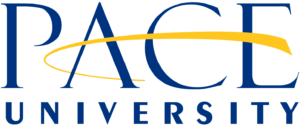
Pace University offers a BBA in Business Analytics through its Lubin School of Business. Students learn the latest skills in analytics and information technology that employers are seeking in employee candidates. The program is one of the few undergraduate business analytics programs in the New York City area. It provides an education in analysis and modeling techniques that relate to descriptive, predictive, and prescriptive analytics, drava visualization, data mining, and optimization. Students are taught in-demand software skills and apply them to real-world business problems to find a resolution and conclusion.
Pace University is a private university located in New York City and Westchester County, New York. Originally founded in 1906 by the Pace Brothers as a school of accountancy and business, the school grew over the years and added schools that include health, arts and sciences, law, business, education, and computer science and information systems. The school’s athletics teams participate in the NCAA Division II Northeast ‑10 Eastern College Athletic Conference.
What We Like: About 9,000 undergraduates and 3,700 postgraduates enroll each academic semester.
Degree: Business Analytics, BBA
24. Miami Dade College

Miami Dade College (MDC) offers a BS in Data Analytics that teaches students invaluable skills for the analyzing and interpretation of a variety of datasets on behalf of an employer. Students engage in areas of study that include statistical data analysis, machine learning models for data classification, database concepts and Structured Query Language, datavisualization techniques, and more. Miami Dade College has agreements with institutions that offer enrollment to MDC graduates into their master’s degree in a related field.
Miami Dade College (MDC or Miami Dade) is a public college and is the largest school in the Florida College System, and the second largest of its kind in the U.S. There are eight different campuses that make up the school, and over 100,000 students enroll each academic year in pursuit of associate and bachelor degrees.
What We Like: The school is home to over 1,600 artworks spread around the campus, indoors and out, and in all types of mediums and genres.
Degree: Data Analytics, BS
25. Western Michigan University

Western Michigan University offers a bachelor’s in Business Analytics through its Haworth College of Business. Students learn how to collect, organize, and comprehend data sets through courses that include business data mining, big data analytics, visual analytics, and more. Upon graduation, students can find employment in roles that include solution architect, health analyst, business intelligence, alongside electives such as practical project management, regression analysis, and topics in computer information systems. Students can join organizations that help support them as they learn about business analytics.
Western Michigan University (WMU) is a public research university that has a Carnegie classification of “R2: Doctoral Universities — High research activity” and features a space-grant affiliation. WMU has almost 150 bachelor’s degree programs, 73 master’s, and 30 doctoral programs. The university has seven colleges, including a College of Aviation, Medical, and Law.
What We Like: The school has produced many notable alumni, including Terry Crews, Luther Vandross, and Homer Stryker.
Degree: Business Analytics
Is Business Analytics a Good Career?
A career in business analytics is a very good career in terms of job satisfaction and income potential. Businesses of all kinds need business analysts who possess training in complex mathematical models, have critical thinking skills, and the ability to handle datasets and datasets, then make sense of the data for business decisions, market research, and predictive analytics. The career path in business analytics is a newish one, and the future of the career in analytics is still uncertain. However, as long as data is collected via the internet, individuals generate reams of collectible data for study, there will be a career in analytics for the data scientist who chooses to pursue this career path.
A career in business analytics is a great option for people who have interests in IT, business management, research and analytics, and writing code. On the surface, these sound like skills that really don’t relate to one another, and it may seem unusual that someone would have an interest in all of these disciplines. The reality is, not all careers in analytics are going to call on all of these skills, and college degree programs in business analytics reflect that fact. The same goes for employment.
The core purpose of a career in business analytics is that of collecting data for analysis on behalf of a business. How this is achieved is not necessarily a fixed process. The odds that all types of careers in analytics are going to be around for the long term are high. And in the event the career path in business analytics changes, degree holders are well-positioned to weather and adapt to the changes through continuing education and following trends.
The method in which this information is collected and stored has become more complex, but the information generated by users still needs to be assembled into a coherent format and analyzed to be useful on behalf of a company. That’s where business analytics comes into play.
What Can I Do with a Degree in Business Analytics?
The question of “what can I do with a business analytics degree?” is a good one. You may find that employers don’t name their positions in a way that references business analytics in a direct fashion. There are plenty of jobs that have the title of data analyst, but that can be a bit vague in terms of explaining what’s expected of you in that position. Here’s a few of the jobs you can do with a degree in business analytics:
- Statistician
- Data architect
- Chief technology officer
- Application architect
- Business insight and analytics manager
- Management analyst
- Operations research analyst
- Business systems analyst
Earning a business analytics degree enables you to work in various types of roles that range from logistics to consultancy. The structure of the work is one of collecting large amounts of data from a single database or multiple sources, applying a query, or multiple queries, to the data, and finding information that relates to the queries. Some positions require knowledge in program languages while others require proficiency in software that is used to pull information from databases. Others require the ability to use complex mathematics to extrapolate data that can help predict future trends. The field of business analytics is one that has something for everyone.
The varied nature of business analytics gives you the opportunity to be selective in terms of degree programs and employment. You can find schools that offer a degree program that aligns with your strengths and interests, then find employment that utilizes your education. It’s a great way to find job satisfaction as well as making use of your education.
Related Rankings:
